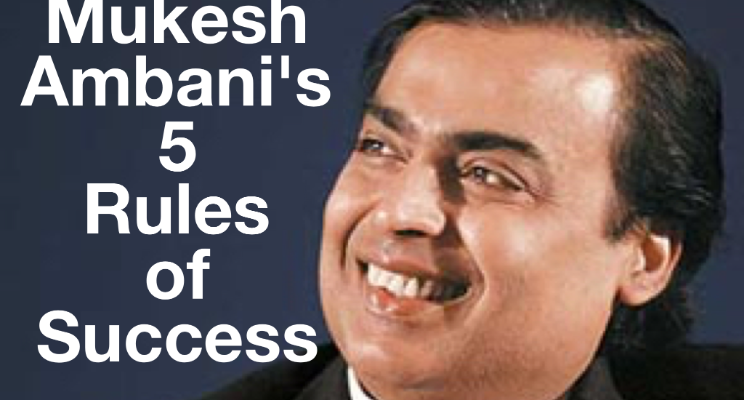Mukesh Ambani is India’s Business Tycoon with a net worth of $23 Billions and the owner of Reliance Industries which is a multi-Billion-dollar Indian conglomerate spanning many industries. Mukesh Ambani’s was recently interviewed at NASSCOM 2017 conference. Its theme was Reimagine and not Re-engineer. NASSCOM is comprised of IT professionals, Software Engineers, Startup companies, and budding entrepreneurs. Its speakers included a heavyweight lineup such as William Ruh, CDO and CEO of GE Digital, Ginni Rometty, Chairman and CEO of IBM, Anand Mahindra, Executive Chairman of Mahindra and Mahindra, Amy Brady, CIO of KeyBank, and many others. When asked, what is his advice, Mukesh said that he is not calling it as “offering an advice” but rather “sharing his learning”. Certainly, quite intriguing to say for a person of his stature. What a humility! Here are his 5 lessons and my 2 cents interpretation:
1) “Be someone who figures out the solution.”
When Mukesh was starting his corporate career, his father businessman, the lateDhirubhai Ambani taught him to look at his tasks not within the lens of a job. Typically, job comes up with the defined sets of roles and responsibilities. But as entrepreneurs, who, many times, despite not possessing every piece of data or information, they figure out the solution (rather than waiting for the marching orders). Being passionate, defying the status-quo, challenging the conventional wisdom, taking risks, risking failures, and accepting and rising to the challenges are all signs of entrepreneurial mindset. Not all companies are the same, but many companies in Corporate America promote innovation by creating R&D center of excellence or innovation centers where it is considered “Ok to Fail” and learn from those experiences.
2) “It is not about solving problem first but finding a problem that you are passionate about solving”.
Interesting perspective! I find sanity in this statement when I look at companies that have created breakthrough transformations in variety of different industries. Few examples:

The list goes on and on. In spite of the marketplace being crowded, these companies (& their respective founders) looked at the problem from different angle, put a twist around it by discovering smart ways to offer the solutions.
3) “The objective of the business should be to solve a problem that does some kind of good to the society in some way. Financial returns should be the by-product of what you do”.
Again, when we look at Point 2 above, we can readily see that by offering the consumers better and smarter ways to get their tasks done, these companies are able to reap financial rewards. They focused on solving problem first and earning money later. The society has been benefited due to the products and services they offer. On the same ground, in the workplace, our goal should be to stay true to our craft (be it business analyst, project manager, software developer, customer service personnel) and deliver value to our stakeholders, projects first. Getting recognized, getting promoted, earning bonuses becomes the by-product (albeit an important one).
4) “Stay positive. Believe in your vision.”
Needless to say, it is easy get distracted by naysayers. Also, when things are not going our way, it is difficult to maintain the “glass half-full wisdom” and we can lose the track of ourselves. Additionally, it is easy to get engulfed by the fear. However, we must acknowledge and recognize it rather than put a blind eye towards it. Only then, we can come up with plan of action that will allow us to capitalize on the opportunities. Per the numerous studies, positivity and performance have direct correlation with each other.
5) “Never get disheartened by failures. Learn from them.”
We are what we think we are and that’s how people judge us. Time and again, many leaders have shown us that it is not possible to achieve success without going through the hardships and setbacks. In addition, to me, this point is about treating success as the journey and not the final destination. Failures are the stepping stone towards the success. Too often, we miss the silver lining that a journey offers to us (albeit its twists and turns) and solely focus on catching the gold. We should cherish both. In summary, the more I look at him, the more it reminds me of Theodore Roosevelt’s saying “Keep your eyes on the stars and your feet on the ground.” So apt and truly applicable for Mukesh Ambani. Despite achieving success, fame, and wealth, he is still keeping his feet firm on the ground. Immense respect for him as a successful businessman and as a human being! To your success with gratitude! Stay blessed! –Makarand Utpat


